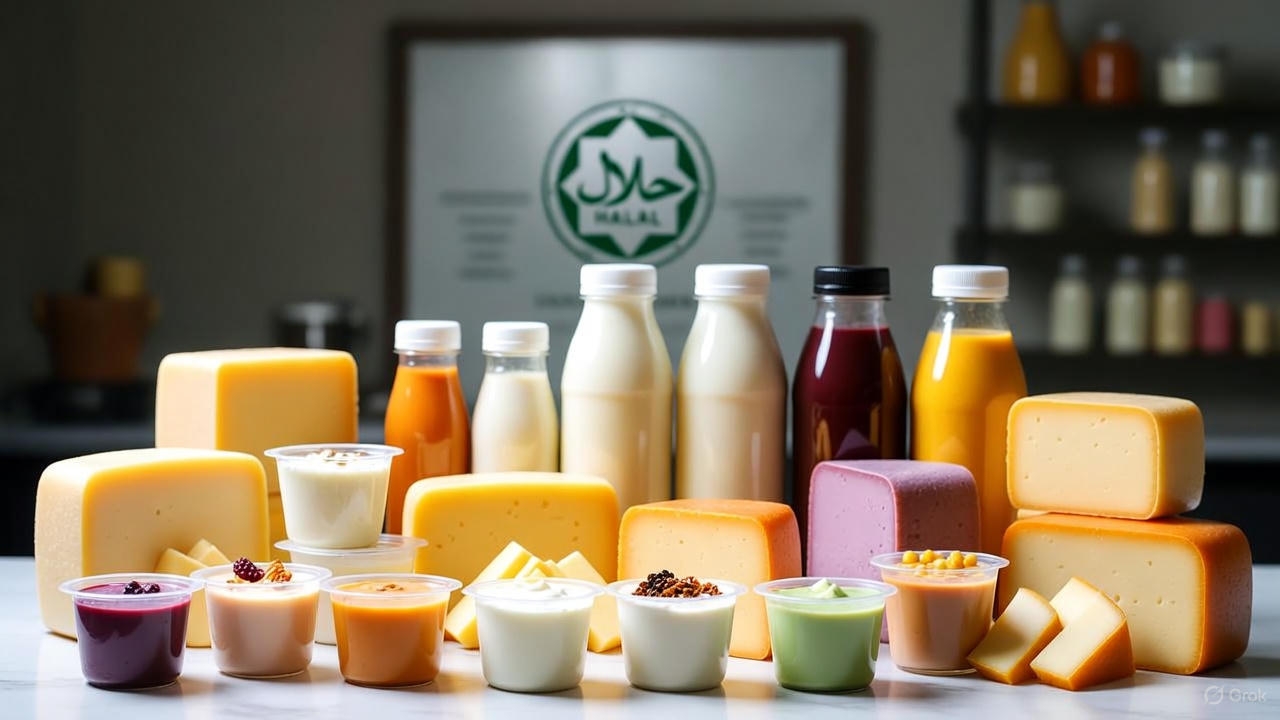Muslim consumers across the United States now demand clear proof that everyday foods meet Islamic dietary laws. Cheese and milk top the list of items that require careful verification because enzymes, rennet, and cultures can come from non-halal sources. Getting proper certification removes doubt and opens doors to a growing market worth billions.
What Halal Cheese Certification Actually Involves
Companies that want to reach this audience need reliable halal cheese certification from recognized bodies. The process starts with a detailed audit of every ingredient and production step. Certifiers check the source of rennet, microbial enzymes, starter cultures, and even cleaning agents used in the plant. Only after full compliance do they issue the official seal.
Benefits of a Single Halal Dairy Certificate for Multiple Products
Many manufacturers also apply for a halal dairy certificate that covers an entire product line. This single document can include fluid milk, yogurt, butter, cream, and powdered milk under one approval. Retailers and food-service buyers prefer this approach because it simplifies purchasing decisions and reduces paperwork.
Strict Requirements for Halal Certification for Cheese in America
The requirements for halal certification for cheese remain strict in America. Traditional animal rennet taken from non-zabiha calves is not permitted. Plants must switch to microbial rennet, vegetable rennet, or fermentation-produced chymosin. Cross-contamination with pork-derived flavors or gelatin in the same facility will void approval instantly.
How Halal Certification for Milk in USA Works for Major Brands
Consumers searching for halal certification for milk in USA will find that major brands now display recognized symbols on cartons. National dairies work with American certifiers to verify milking, transportation, pasteurization, and packaging stay free of haram substances. Local certification gives shoppers extra confidence.
Full Coverage Under Halal Certification for Dairy Products
Every type of dairy item falls under halal certification for dairy products. This category includes ice cream bases, whey protein concentrates, casein, lactose powder, and cheese curds sold to restaurants. Large processors often schedule annual audits and surprise inspections to maintain active status year-round.
Kosher vs. Halal: Why Separate Certification Is Required
Some plants already hold kosher approval and think the switch will be easy. While equipment and cleanliness standards overlap, halal rules add specific demands. Alcohol-based sanitizers, animal-derived foaming agents, and certain vitamins sprayed on finished products can trigger rejection. Separate audits are still required.
Premium Lines and Dairy Milk Halal Certification for Organic Products
A second version of the halal dairy certificate exists for organic and grass-fed milk lines. These premium products attract both Muslim and health-conscious buyers. Certifiers examine feed given to cows, veterinary medicines, and pasture management alongside standard slaughter rules for any male calves entering the food chain.
Market Growth and Business Case for Certification
The market keeps expanding rapidly. Grocery chains report double-digit sales growth in certified items. Restaurants add certified cheese to menus to serve diverse communities. Schools and hospitals request verified suppliers to meet religious accommodation policies. Brands that ignore this segment leave money on the table.
Leading U.S. Halal Certification Bodies
Certification bodies in the United States follow guidelines set by the Islamic Food and Nutrition Council of America (IFANCA), Islamic Services of America (ISA), and several others. Each agency publishes approved plant lists online so consumers can check current status before buying.
Options for Small Producers Seeking Certification
Small artisanal producers also seek dairy milk halal certification to enter ethnic stores and online platforms. The application includes facility blueprints, ingredient spec sheets, and supplier declarations. Auditors visit during actual production runs to watch cheese-making from milk intake to aging rooms.
Certification Costs and ROI Timeline
Cost varies by plant size and product range. Basic fluid milk certification starts around three thousand dollars annually, while multi-state cheese operations with dozens of SKUs pay fifteen thousand or more. Many companies recover the expense quickly through higher volume and premium pricing.
Export Advantages of U.S.-Issued Halal Certificates
Export markets provide another strong reason to get certified. Countries like Malaysia, Indonesia, and Saudi Arabia require official halal documents before allowing entry. American cheese and powdered milk carrying USA-issued certificates clear customs faster and command better wholesale prices.
Packaging Rules and Legal Protection
Retail packaging must display the certification mark clearly. Federal law allows the word “halal” only when backed by legitimate third-party verification. False claims lead to lawsuits, fines, and permanent loss of consumer trust. Reputable agencies provide camera-ready artwork and usage guidelines.
Find Verified Producers at halalwatch.us
One useful resource for manufacturers and shoppers alike appears at halalwatch.us with any keyword. The site maintains an up-to-date directory of certified dairies, cheese makers, and ice cream plants across all fifty states, complete with expiration dates and direct links to each certificate.
Timeline from Application to Approval
The certification journey typically takes three to six months from initial application to final approval. Plants that prepare documentation in advance and schedule mock audits finish faster. Ongoing compliance requires quarterly reports and at least one unannounced visit per year.
Real Impact on Muslim Families and Businesses
Muslim families now fill shopping carts with confidence when they spot familiar crescent logos on dairy cases. Children enjoy string cheese at school knowing it meets faith requirements. Restaurants serve pizza and lasagna without hesitation. All of this becomes possible because producers invested in proper certification systems.
Next Steps for Brands Ready to Get Certified
Brands entering the category for the first time should contact an established agency right away. Early planning prevents costly reformulations later. The payoff comes quickly as loyal customers reward transparency with repeat purchases and word-of-mouth promotion.
American halal dairy has moved from niche to mainstream in less than a decade. Forward-thinking companies that secure certification today position themselves for continued growth tomorrow. The process protects religious observance while opening access to millions of new customers ready to buy safe, permissible cheese and milk products every day.
